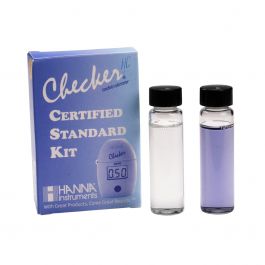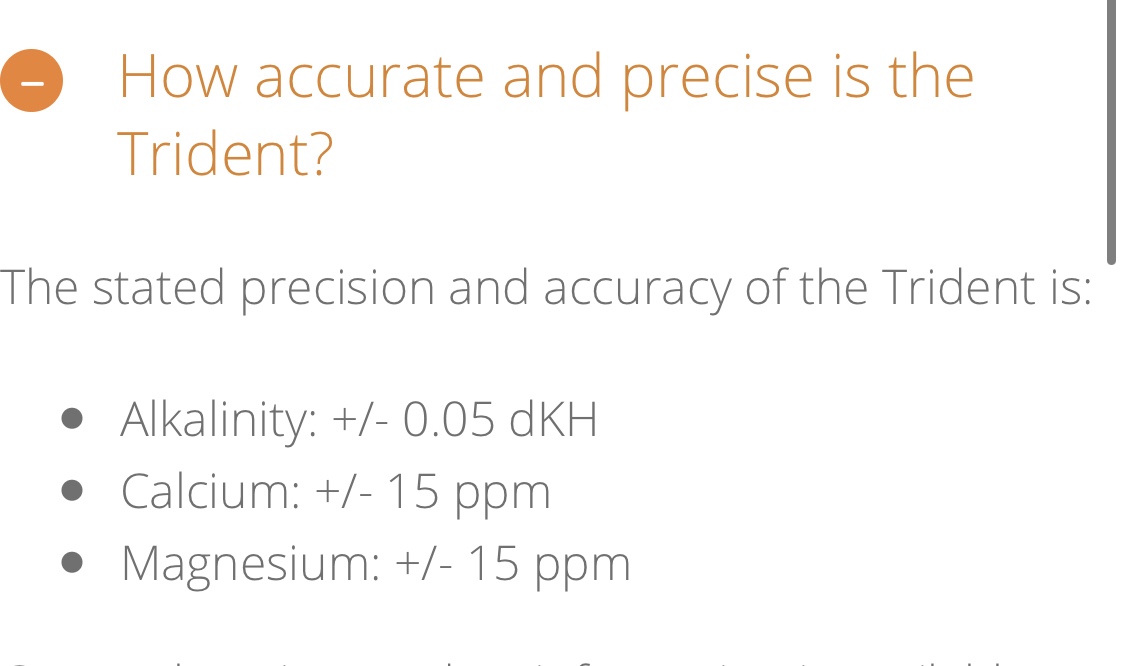- Joined
- Sep 8, 2019
- Messages
- 2,303
- Reaction score
- 2,859
I did my first calibration today. I waited about two weeks to calibrate as I was not all that worried about the accuracy for right now. As others have stated it is really not all that far off straight out of the box and I found that to be true.
I had to leave home after the calibration so I could not test the fluid using my other test kits right away. I ended up doing it about five hours after first opening the bottle. This should be ok based on Neptunes statement of 8 hours being the maximum time.
I had some mixed results and I am not sure if this is normal or if it was based on the five hour time period or what?
First of all I checked the Calcium and as you can see the results are pretty much dead on. Thanks to that great video on using the calcium checker properly I have honed my skills a lot more.

On The Alk side I was very puzzled by the results.

So that translates to 8.4 dKH ??
In all fairness my reagent was going to expire on 9/2020 and is almost finished. I got rooked on an Amazon order and got an older batch and just never bothered to return it. I am still not sure if that is the reason or maybe its the length of time the bottle was open or is it that the Hanna cannot read the Alk in the calibration fluid properly?
I then did the Magnesium test with the Red Sea Pro and that was also off by a lot.

Note: Before I could take the picture the color shifted back from Blue to purple.
The remaining fluid was .26 which I think translated on the chart to 1480
I did repeat the Alk test twice and the first time I got a slightly lower number but I was actually more careful on the second test, so that is the one I think is correct. Honestly I could not bother to do the Mg test again, I will do it on the tank water tomorrow.
So has anyone else had similar results or is your calibration fluid a match on everything?
I had to leave home after the calibration so I could not test the fluid using my other test kits right away. I ended up doing it about five hours after first opening the bottle. This should be ok based on Neptunes statement of 8 hours being the maximum time.
I had some mixed results and I am not sure if this is normal or if it was based on the five hour time period or what?
First of all I checked the Calcium and as you can see the results are pretty much dead on. Thanks to that great video on using the calcium checker properly I have honed my skills a lot more.
On The Alk side I was very puzzled by the results.
So that translates to 8.4 dKH ??
In all fairness my reagent was going to expire on 9/2020 and is almost finished. I got rooked on an Amazon order and got an older batch and just never bothered to return it. I am still not sure if that is the reason or maybe its the length of time the bottle was open or is it that the Hanna cannot read the Alk in the calibration fluid properly?
I then did the Magnesium test with the Red Sea Pro and that was also off by a lot.
Note: Before I could take the picture the color shifted back from Blue to purple.
The remaining fluid was .26 which I think translated on the chart to 1480
I did repeat the Alk test twice and the first time I got a slightly lower number but I was actually more careful on the second test, so that is the one I think is correct. Honestly I could not bother to do the Mg test again, I will do it on the tank water tomorrow.
So has anyone else had similar results or is your calibration fluid a match on everything?











